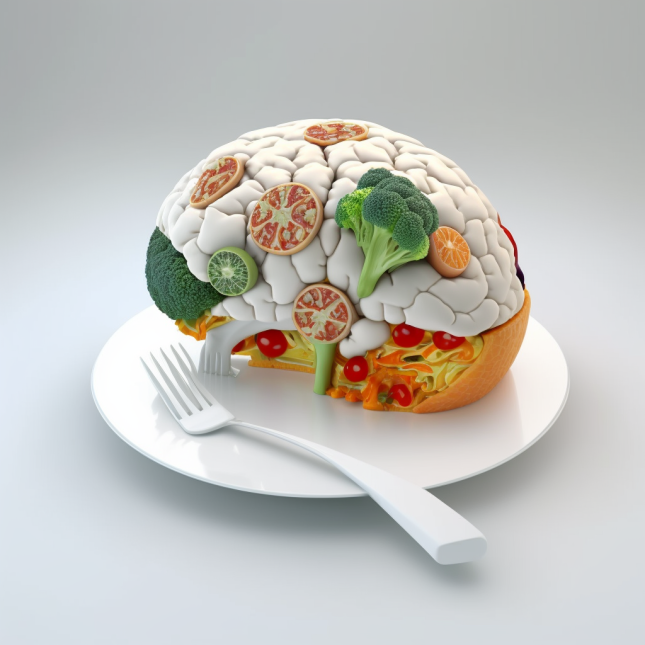Navigating stress can be a daunting task, especially in today’s fast-paced world. With so much going on around us, it’s easy to feel overwhelmed and anxious. However, it’s important to remember that stress is a natural part of life, and learning how to manage it can lead to a more fulfilling and balanced life. In this article, we will explore stress-busting secrets that can help you navigate chaos and cultivate calm.
One of the first steps in easing stress is to identify the cause. Whether it’s work-related or personal, pinpointing the source of stress can help you take control of the situation and develop effective coping mechanisms. From there, you can learn how to manage your stress levels and prevent them from spiraling out of control.
Learning how to ease stress takes time and effort, but it’s a valuable investment in your mental and physical health. By adopting stress-busting techniques, you can grow and develop as a person, improve your relationships, and increase your overall well-being. Join us as we explore the ultimate guide to managing stress and navigating chaos with ease.
Understanding Stress
Stress is an unavoidable part of life that affects us all at some point. It can come from external sources such as work, relationships, or finances, or internal sources such as worry, anxiety, or fear. While stress can be helpful in certain situations, such as motivating us to meet a deadline or perform well in a competition, too much stress can be harmful to our physical, emotional, and mental health.
The Role of Stress in Our Lives
Stress is a natural response to perceived threats or challenges. It triggers the body’s fight-or-flight response, which prepares us to take action. This response is essential for survival, but chronic stress can lead to serious health problems.
The Science of Stress: Stress Centers in the Body
Stress is a complex biological process that involves several systems in the body, including the nervous, endocrine, and immune systems. When we experience stress, the hypothalamus in the brain activates the sympathetic nervous system, which releases adrenaline and cortisol. These hormones increase heart rate, blood pressure, and breathing rate, preparing the body for action.
The Impact of Stress on Health
Chronic stress can have a significant impact on our physical, emotional, and mental health. It can lead to high blood pressure, heart disease, diabetes, and other chronic conditions. It can also cause anxiety, depression, and other mental health problems.
Identifying Your Personal Stress Triggers
Everyone experiences stress differently, and what triggers stress for one person may not be a stressor for another. It’s essential to identify our personal stress triggers so we can manage them effectively. Some common stressors include work-related stress, financial stress, relationship stress, and health-related stress.
In conclusion, stress is a natural response to perceived threats or challenges, but chronic stress can have serious health consequences. It’s essential to identify our personal stress triggers and develop healthy coping mechanisms to manage stress effectively.
Psychological Aspects of Stress
The Connection Between Stress and Our Thoughts
Our thoughts have a powerful impact on our stress levels. When we perceive a situation as stressful, our thoughts can either amplify or alleviate our stress response. Negative thoughts, such as worry and self-doubt, can intensify our stress levels, while positive thoughts, such as optimism and self-compassion, can help us cope with stress more effectively.
To manage our thoughts and reduce stress, we need to cultivate awareness of our thinking patterns. Mindfulness meditation and cognitive-behavioral therapy are two effective techniques that can help us become more aware of our thoughts and change them in a positive direction. By challenging negative thoughts and replacing them with positive ones, we can reduce our stress levels and improve our overall well-being.
Stress and Emotional Well-Being
Stress can have a significant impact on our emotional well-being. Chronic stress can lead to anxiety, depression, and other mental health issues. To maintain emotional balance and reduce stress, we need to prioritize self-care activities that promote emotional well-being.
Activities such as exercise, spending time with loved ones, and engaging in hobbies can help us feel more relaxed and positive. Additionally, practicing relaxation techniques such as deep breathing, progressive muscle relaxation, and visualization can help us manage stress and reduce its impact on our emotional well-being.
In conclusion, our thoughts and emotions play a critical role in how we experience stress. By cultivating awareness of our thoughts and prioritizing self-care activities that promote emotional well-being, we can reduce stress and improve our overall quality of life.
Advanced Techniques for Stress Management

When it comes to managing stress, there are a variety of techniques available to us. While some techniques may work better for some individuals than others, it is important to find what works best for us and to incorporate it into our daily routine. In this section, we will explore some advanced techniques for stress management.
Cognitive Therapy for Stress Management
Cognitive therapy is a type of talk therapy that helps individuals identify and change negative thought patterns that contribute to stress. This technique aims to help individuals understand how their thoughts, feelings, and behaviors are interconnected and to develop more positive ways of thinking. Some strategies used in cognitive therapy for stress management include:
- Identifying negative thought patterns and replacing them with positive ones
- Focusing on the present moment and avoiding catastrophic thinking
- Challenging negative beliefs and assumptions
- Practicing relaxation techniques, such as deep breathing and progressive muscle relaxation
Breath Control and Body Awareness
Breath control and body awareness techniques involve paying attention to our breath and body sensations to help us relax and reduce stress. These techniques can be practiced anywhere at any time and can be especially helpful during times of high stress. Some strategies for breath control and body awareness include:
- Deep breathing exercises
- Progressive muscle relaxation
- Yoga and other forms of exercise
- Mindful movement practices, such as tai chi and qigong
Mindfulness-Based Stress Management
Mindfulness-based stress management involves paying attention to the present moment without judgment. This technique aims to help individuals become more aware of their thoughts and emotions and to develop a more accepting and compassionate attitude toward themselves and others. Some strategies for mindfulness-based stress management include:
- Mindful breathing exercises
- Body scan meditations
- Mindful eating and drinking
- Mindful walking and movement practices
Other Unconventional Stress Management Techniques
In addition to the techniques mentioned above, there are many other unconventional stress management techniques that can be effective for some individuals. These techniques include:
- Acupuncture and other forms of traditional Chinese medicine
- Aromatherapy and essential oils
- Music therapy and sound healing
- Pet therapy and animal-assisted interventions
While these techniques may not work for everyone, they can be helpful for some individuals in managing stress. It is important to find what works best for us and to incorporate it into our daily routine. With practice, we can learn to navigate chaos and cultivate calm in our lives.
Building Resilience Against Stress
Stress can be overwhelming, but building resilience can help us navigate chaos and cultivate calm. Resilience is our ability to cope with and bounce back from stress and adversity, and hopefully even grow through the experience. In this section, we will explore some ways to build resilience against stress.
The Power of Self-Compassion in Stress Resilience
Self-compassion is an important tool in building resilience against stress. It involves treating ourselves with kindness and understanding, rather than harsh self-criticism. When we are stressed, it is easy to fall into negative self-talk and self-blame. However, self-compassion can help us break this cycle and build resilience.
To cultivate self-compassion, we can try:
- Practicing self-forgiveness
- Offering ourselves words of kindness and support
- Acknowledging our struggles without judgment
Cultivating Emotional Intelligence
Emotional intelligence is the ability to recognize and manage our own emotions, as well as understand and empathize with the emotions of others. It is an important skill in building resilience against stress, as it helps us regulate our own emotions and respond effectively to the emotions of others.
To cultivate emotional intelligence, we can try:
- Practicing mindfulness meditation
- Paying attention to our own emotions and reactions
- Practicing empathy and active listening
Enhancing Focus and Attention
Stress can make it difficult to focus and pay attention, which can further increase our stress levels. However, enhancing our focus and attention can help us build resilience against stress.
To enhance focus and attention, we can try:
- Practicing mindfulness meditation
- Taking breaks throughout the day to rest and recharge
- Setting boundaries to minimize distractions
Building resilience against stress takes time and practice, but it is worth the effort. By cultivating self-compassion, emotional intelligence, and enhancing focus and attention, we can build our resilience and navigate stress with greater ease.
Navigating Chaos: The Role of Lifestyle in Stress Management
When it comes to managing stress, lifestyle plays a crucial role. Our daily habits and routines can either contribute to our stress levels or help us navigate through chaos and cultivate calm. In this section, we will explore some lifestyle factors that can help us manage stress effectively.
Importance of Healthy Relationships for Stress Reduction
Having healthy relationships with family, friends, and colleagues can help us reduce stress. When we have a support system, we can share our problems, worries, and concerns, and get emotional support and practical advice. Healthy relationships can also provide us with a sense of belonging and purpose, which can boost our mood and energy levels.
Exercise and Stress Reduction
Exercise is a powerful stress-busting tool. When we exercise, our body releases endorphins, which are natural mood boosters. Exercise also helps us reduce muscle tension, improve our sleep quality, and boost our energy levels. It doesn’t have to be intense or time-consuming; even a short walk or a yoga session can help us manage stress effectively.
The Role of a Balanced Diet in Stress Management
Eating a balanced diet can help us manage stress by providing us with the necessary nutrients and energy. When we eat healthy foods, we can improve our mood, concentration, and productivity. On the other hand, consuming too much caffeine, sugar, or processed foods can worsen our stress levels and lead to mood swings and energy crashes.
Reading and Other Relaxation Activities for Stress Management
Engaging in relaxation activities such as reading, listening to music, or taking a warm bath can help us reduce stress and promote relaxation. When we engage in these activities, we give our mind and body a break from the stressors of daily life. Reading, in particular, can be an effective stress management tool as it can help us escape into a different world and reduce our cortisol levels.
In conclusion, our lifestyle habits and routines can have a significant impact on our stress levels. By cultivating healthy relationships, exercising regularly, eating a balanced diet, and engaging in relaxation activities, we can navigate through chaos and cultivate calm.
Stress and Your Health
Stress is a natural response to challenging situations, but when it becomes chronic, it can have serious consequences for our physical and mental health. In this section, we’ll explore the physical symptoms of stress, how chronic stress can lead to long-term health problems, and simple habits for physical self-care.
Understanding the Physical Symptoms of Stress
Stress can manifest itself in a variety of physical symptoms, including headaches, muscle tension, fatigue, and difficulty sleeping. These symptoms can be caused by the release of stress hormones like cortisol, which can disrupt our body’s natural rhythms and lead to a range of health problems.
How Chronic Stress Can Lead to Long-Term Health Problems
When stress becomes chronic, it can lead to a range of long-term health problems. For example, chronic stress has been linked to cardiovascular disease, high blood pressure, gastrointestinal disorders, diabetes, cancer, and asthma. It can also weaken our immune system, making us more susceptible to illness and infection.
Simple Habits for Physical Self-Care
Fortunately, there are many simple habits we can adopt to reduce the physical symptoms of stress and promote physical self-care. Here are a few ideas:
- Exercise regularly: Exercise is a great way to reduce stress and improve our overall health. Try to get at least 30 minutes of moderate exercise most days of the week.
- Practice relaxation techniques: Techniques like deep breathing, meditation, and yoga can help us relax and reduce stress.
- Get enough sleep: Aim for 7-9 hours of sleep each night to help your body repair and recharge.
- Eat a healthy diet: A balanced diet can help support our immune system and reduce inflammation in the body.
- Stay hydrated: Drinking plenty of water can help us feel more alert and focused, and support our body’s natural processes.
By taking care of our physical health, we can better manage the physical symptoms of stress and reduce our risk of long-term health problems.
Professional Help for Stress Management
When it comes to managing stress, seeking professional help can be a valuable tool. Psychologists and therapists are trained to help individuals navigate the complexities of stress and develop strategies for coping and managing the impact of stress on their lives.
Role of Psychologists and Therapists in Stress Management
Psychologists and therapists can help individuals learn new strategies for managing stress. They can provide support and guidance in developing awareness of stress triggers and developing coping mechanisms. Psychologists and therapists can also help individuals navigate the challenges of stress in their personal and professional lives.
Through therapy, individuals can learn to identify and challenge negative thought patterns that contribute to stress. They can also develop skills for managing stress in the moment, such as deep breathing, mindfulness, and progressive muscle relaxation. Additionally, therapists can provide support and guidance for individuals navigating major life changes, such as job loss, divorce, or the death of a loved one.
Support Groups and Other Resources for Stress Management
In addition to therapy, there are many other resources available for individuals experiencing stress. Support groups can be a valuable tool for individuals seeking a sense of community and connection with others who are experiencing similar challenges. Support groups can be found online or in-person and can be focused on specific topics, such as parenting, caregiving, or workplace stress.
Other resources for stress management include books, podcasts, and online courses. These resources can provide valuable information and strategies for managing stress. Additionally, many workplaces offer employee assistance programs (EAPs) that provide confidential support and resources for employees experiencing stress.
In conclusion, seeking professional help for stress management can be a valuable tool for individuals looking to develop new strategies for managing stress. Psychologists and therapists can provide support, guidance, and resources for individuals navigating the complexities of stress in their personal and professional lives. Additionally, support groups and other resources can provide valuable information and community for individuals experiencing stress.
Cultivating Calm: Emotional Self-Care
Importance of Maintaining Emotional Balance
Maintaining emotional balance is vital to our overall well-being. When we are emotionally balanced, we are better equipped to handle life’s challenges and stressors. It allows us to respond to situations with clarity and focus, rather than reacting impulsively.
When we are emotionally unbalanced, we may experience anxiety, depression, or other negative emotions that can interfere with our daily lives. We may also struggle to connect with others and find it challenging to maintain healthy relationships.
Techniques for Cultivating Calm in Daily Life
Fortunately, there are several techniques we can use to cultivate calm in our daily lives. Here are a few techniques to consider:
- Mindful Breathing: Taking a few deep breaths can help us calm our minds and bodies. Focus on your breath as you inhale and exhale, and try to clear your mind of any distracting thoughts.
- Meditation: Meditation is a powerful tool for cultivating calm. Find a quiet place to sit or lie down, and focus on your breath. If your mind wanders, gently bring it back to your breath.
- Knowing Our Triggers: Knowing what triggers our stress and anxiety can help us avoid or manage those situations. Take note of situations or people that cause you to feel stressed, and try to avoid or mitigate those triggers when possible.
- Self-Care: Taking care of ourselves is essential for maintaining emotional balance. Make time for activities that bring you joy and relaxation, such as reading, taking a bath, or spending time in nature.
- Seeking Support: Sometimes, we need support from others to cultivate calm. Consider seeking support from a therapist, counselor, or trusted friend or family member.
By incorporating these techniques into our daily lives, we can cultivate calm and maintain emotional balance. Remember, it takes time and practice to develop these skills, so be patient with yourself and celebrate your progress.
Conclusion: Embracing a Stress-Resilient Lifestyle
Recap of Key Points
Throughout this guide, we have covered various stress-busting secrets that can help us navigate chaos and cultivate calm. We have learned that stress is a natural response to challenges and that we can use it to our advantage by developing stress resilience. We have also explored some common stressors, such as work, relationships, and health, and discussed how we can manage them effectively.
One of the most important strategies for managing stress is to change our mindset. By reframing stress as a positive force that can help us grow and progress, we can reduce its negative impact on our health and well-being. We can also use various stress management techniques, such as mindfulness, exercise, and social support, to build our stress resilience and cope with stress more effectively.
Encouragement for Readers to Start Implementing Stress Management Techniques in Their Lives
We hope that this guide has provided you with valuable insights and practical tips for managing stress and cultivating calm. We encourage you to start implementing these stress management techniques in your daily life and see how they can help you build resilience and thrive in the face of challenges.
Remember, stress is a normal part of life, and we can’t always avoid it. However, by developing stress resilience and using effective stress management techniques, we can reduce its negative impact on our health and well-being and live a more fulfilling life.
So, let’s embrace a stress-resilient lifestyle and take charge of our stress today!
References
Citing Sources
As we have compiled this guide, we have consulted a variety of sources to provide you with accurate and up-to-date information. All the sources used in this article have been cited within the text. We have made sure to use credible sources, including peer-reviewed journals, reputable news outlets, and books written by experts in the field.
Further Reading Materials
If you are interested in learning more about stress management and cultivating calm, we recommend the following books:
- “Navigating Stress: How to Find Calm During Stressful Times” by Joy Langley
- “The Relaxation Response” by Herbert Benson
- “The Power of Now” by Eckhart Tolle
- “The Mindfulness-Based Stress Reduction Workbook” by Bob Stahl and Elisha Goldstein
- “The Upside of Stress: Why Stress Is Good for You, and How to Get Good at It” by Kelly McGonigal
We also recommend the following articles and websites:
- “6 Strategies for Leading Through Uncertainty” by Harvard Business Review
- “4 Stress-Busting Strategies – Reclaim Your Calm” by Better Nutrition
- “The 5 Stress-Busting Hacks You Didn’t Know You Needed Until Now” by Forbes
Remember, stress management is a personal journey, and what works for one person may not work for another. It is essential to find the techniques and strategies that work best for you. We hope this guide has been helpful in providing you with a starting point for navigating chaos and cultivating calm in your life.
Woo-hoo, You’re a Content Wrangler!
Yee-haw, you’ve done it! You’ve lassoed this post, wrangled every word, and claimed victory. Now that’s some impressive rodeo skills! 🤠
But don’t ride off into the sunset just yet! We’re keen on hearing your tales from the rodeo. Share your thoughts, experiences, or a cowboy joke in the comments below. Let’s turn this post into a campfire gathering!
Share this post on social media, invite your friends to join the roundup. And don’t forget, there’s always a new rodeo in town – we update our content regularly, so check back often.
Until the next roundup, keep wrangling, keep sharing, keep riding!
Remember, these sign-offs aim to engage your audience, encouraging them to participate in the conversation, share your posts, and come back for updates. I hope these meet your requirements!



